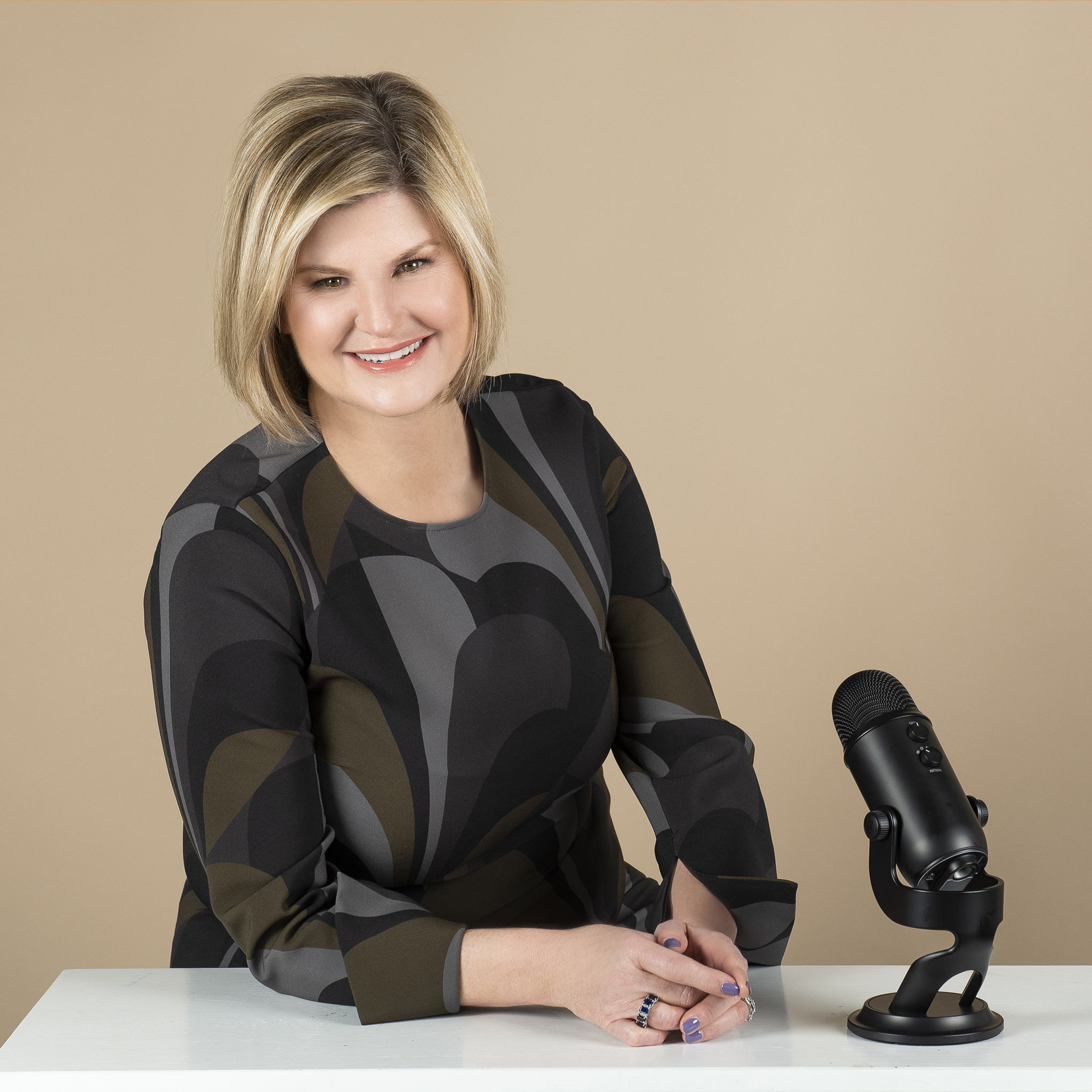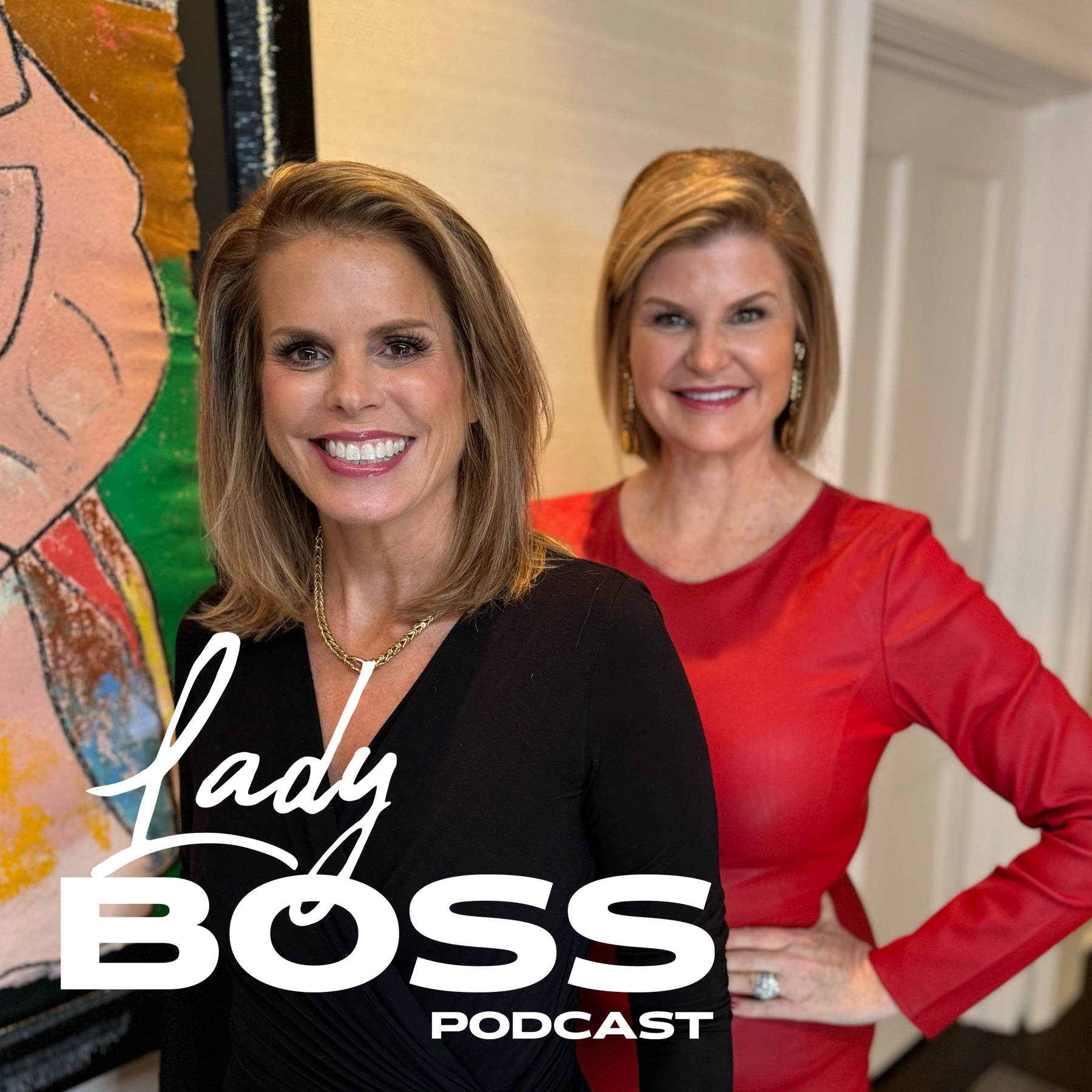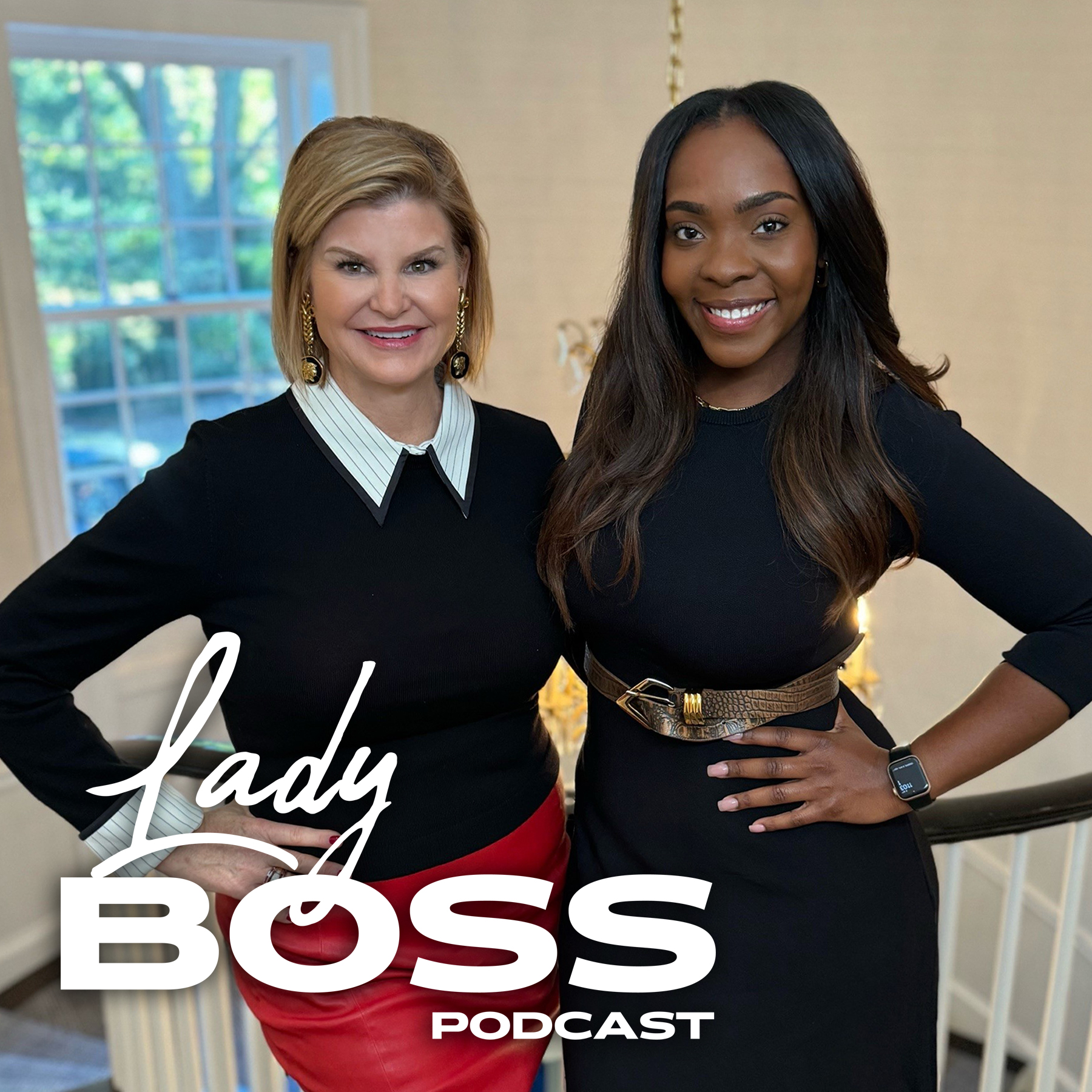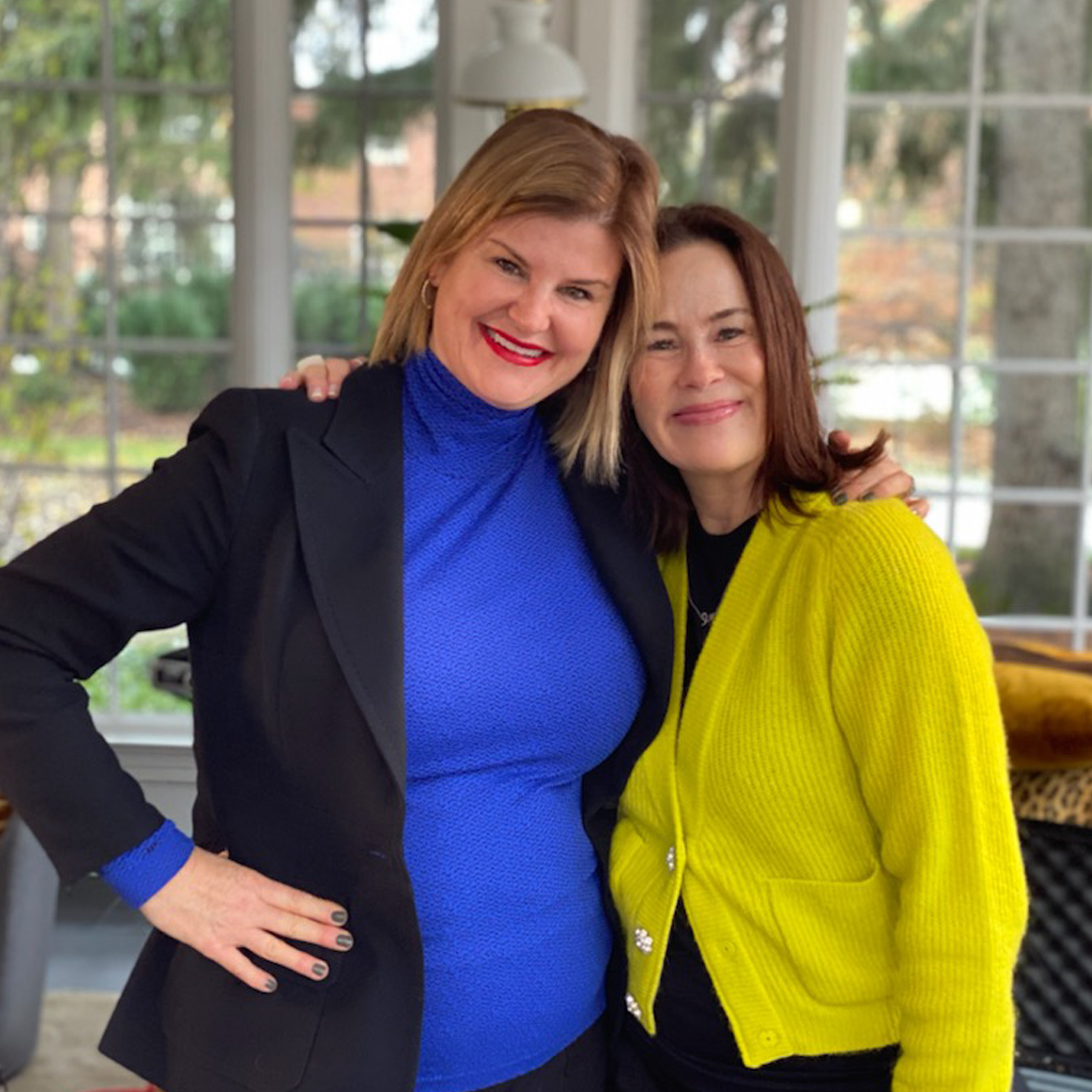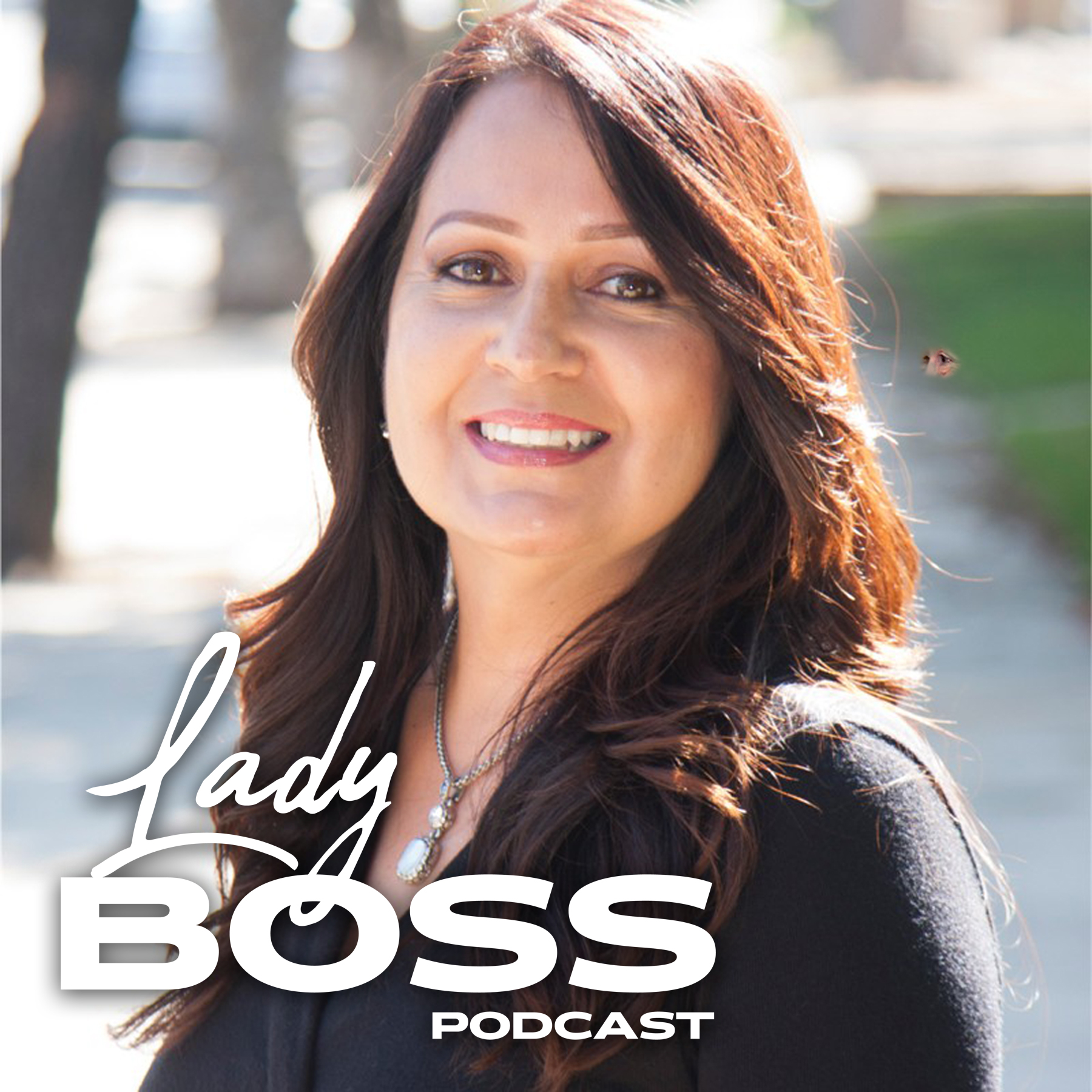Episode Transcript
[00:00:00] Speaker A: Hi, guys. Today on the show we have a really special guest, Dr. Elizabeth Lombardo. She's going to talk to us about all things mental health, wellness, and I'll call it positivity. Listen in because all of us entrepreneurs need the hacks, the lessons and the shortcuts to make sure we stay on our A game.
All right. Dr. Elizabeth Lombardo. I am so excited. I've been waiting for this all day and thrilled to talk to about the business of anxiety.
[00:00:34] Speaker B: The business of anxiety.
[00:00:36] Speaker A: So we're going to come about this in a way where we really hear about the work you do, really from the business angle because obviously you're super credentialed and really have all the doctoral and things behind you. But I want to know more about digging deep.
[00:00:54] Speaker B: We're digging back. Okay.
[00:00:55] Speaker A: Dig back into how this works from a business perspective. And a lot of doctors are not very good business people.
[00:01:01] Speaker B: Yes. Let's see. I think postgraduate, I had nine years of training and I had a 30 minute conversation once about business. So yes, that's very understandable.
[00:01:14] Speaker A: There you go. So here you are. And you've grown a pretty significant empire out of this business of anxiety. And I know it's a lot more than that, but that's a word that didn't exist when I was young. Nobody in.
[00:01:30] Speaker B: Well, it did, but it was behind. It was behind the doors and it was in offices and people experienced it. We just didn't call it that.
[00:01:37] Speaker A: Call it that. Okay, maybe that's fair.
[00:01:39] Speaker B: Beginning of time. We've had anxiety.
[00:01:41] Speaker A: So in a way, you are helping people live their best lives. But you also have to focus on how this works from a commercial standpoint.
[00:01:51] Speaker B: Yeah.
[00:01:51] Speaker A: So what are some of the ways that you have expanded your practice with that in mind? Yeah.
[00:01:57] Speaker B: Well, I think even taking a step back, I think a lot of people who are in a caring profession seem to think a caring profession, serving others and making money, you have to choose one. And that's totally wrong. So the first step is really addressing our mindset. And that's really what was a big step for me, being okay with asking for a certain amount of money, knowing what the return on investment is. And so I have a price point right now with coaching clients and I'm going to answer your question, but kind of understanding, if they don't buy my package, what is the cost to them? And I'll tell you, it's a lot more than they're ever paying me. So the first step for me, and I think for most people is really to optimize that mindset to realize that serving and making money absolutely can go together.
[00:02:43] Speaker A: I think it's actually like any commodity. So my dad, I talk about it a lot, was a clothier and he would say often if people would come into his shop for custom clothes and they would, he's like, they're cheap. I'm like, no, they don't value clothing. They're not cheap. They've got all the money to buy cars and second houses and everything. Yeah, same thing with you. People may not have hit that point in their life where they realize the impact of a mental health issue.
[00:03:07] Speaker B: Yeah, yeah.
[00:03:08] Speaker A: And your health, when you say, well, I don't want to go to the doctor, that's expensive. What's it costing you? And you talk a lot about that.
[00:03:14] Speaker B: Yes, yes. Because it's not just, it's not a short term cost, it's a forever cost. Right. When we are not our best up here, it negatively impacts not only how we feel emotionally, it impacts our bodies.
Happier people live eight to 10 years longer. When we're super stressed, we actually lose a lot of years off of our life. So it impacts our physical health, our relationships, impacts every facet of our lives.
[00:03:37] Speaker A: Okay, let's say that one more time. So happier people live up to 10 years longer. I believe it. And unhappy people a decade less.
[00:03:46] Speaker B: Yeah, okay.
[00:03:46] Speaker A: Yeah, yeah, okay. So, yeah, that would be an easy business case to make. But like any business, I'm guessing you have a close percentage where it's not 100%.
[00:03:56] Speaker B: It's not. And so my mentality is always, how can I serve best? And if people aren't really ready to pay my prices, I'm fine with that because I don't want to. I'm not going to bargain on what I'm. What I'm offering. I know what it's worth. And that's totally fine if they're not there, but I'm the kind of person who's going to find them someone who they can work with. Because for me, a win is getting someone the help that they need. And if that's not me, I'm going to try to find the help that is right for them. Now, it's a different mindset, but it allows me to go to bed at night.
[00:04:26] Speaker A: Yeah, I like the mindset because oftentimes in our business, if someone says we're expensive, I say, well, you can go here and there in this place and it doesn't come with all of this that we're offering, but that might be good enough. Yeah. And Sometimes good is good enough in all our businesses. So do you have to do lead gen or do people just refer you?
[00:04:46] Speaker B: People usually refer me or in my media or social media, people will reach out to me. I'm also a professional speaker, so sometimes being on stage, then people will want to work with me after.
[00:04:55] Speaker A: Okay, so how did you get into that speaking? Yes.
[00:04:59] Speaker B: So the first book I wrote came out, I think in 2009. And while I was writing this book, I learned a statistic which that was that the average book sells less than 250 copies the first year. And given it was taking me forever to write this book, I was putting in so much time and energy and I thought I need more than that many people to read the book, to buy the book. So at the time, social media wasn't a big thing, so that meant speaking and being on tv. Now I was scared to death to speak in front of a group bigger than three. So I did a lot of internal work and then I did a lot of external work in terms of the skills training. But I've been a professional speaker now for well over a decade.
[00:05:37] Speaker A: Congratulations. I can't believe. How many books do you have now?
[00:05:40] Speaker B: Well, it's kind of a trick question for the general public. I have four. I have a treatment book that I wrote with my mentors that psychology students use, but that doesn't really count.
[00:05:49] Speaker A: Well, right there I think you have differentiated yourself. It's no wonder you're so successful because you've not relied on one model.
You've really pushed the boundaries, you've continued to innovate, you've continued to writing stinks. I did it this year. It's just a terrible process. And you write, you don't sell a lot of books, you don't do it for money, Right?
[00:06:10] Speaker B: Yes.
[00:06:10] Speaker A: You do it to get to know more people that can hopefully allow you to work on your platform.
[00:06:14] Speaker B: Yeah, yeah. And for me it was very much I could work one on one with clients, but I want to change the world. So one of the ways that I can do that is by speaking, writing books, scaling it. Yeah, yeah.
[00:06:26] Speaker A: So how typical is it to be a doctor in your profession and have the presence you have on social media?
[00:06:34] Speaker B: Nuts. There's not a whole lot of us. Yeah.
And that's, I think, the fun thing. So I, when I was getting my PhD, the program was very much about academia and anything outside of academia was shunned. Even private practice was. Oh, because you can't do academia. But what I realize is it doesn't matter if, if the students all learn this. Everyone deserves to learn this stuff. It was my first week of psychology school. I'm madly taking notes as the professor, speaking, talking about how the subconscious controls pretty much everything, how we feel and how we function. And I'm wondering, why do I have to get a PhD to learn this? We all should understand basics of how our mind works for instead of against us. Right. And so my mission, it's not just a business. I mean, my mission is really to get this information out to the masses so that we all can benefit. Because that's the kind of world I want to live in. And that's the kind of world I want to leave for my kiddos and grandkiddos.
[00:07:25] Speaker A: Yeah.
Is it true that you know younger people? I heard a lot of those messages you're talking about just at a younger age. And I think the brain was more open to it. I didn't know another way. So self limiting beliefs didn't weren't a thing for me because I didn't know them, I didn't grow them, so to speak. Can you change midlife people?
[00:07:45] Speaker B: Yes. Yeah, we rewire our brains so every thought we have are just nerves firing in a certain pattern. And we can rewire that brain. I have a process I call neuroregenerative training that takes kind of the best of cognitive behavior therapy, nlp, all these, all these wonderful things. I mix it up and I teach clients from conscious to unconscious mind how to rewire our brain. And then when I'm working with individual clients, we'll do some unconscious work directly to change that brain. But we can, we can rewire our brains. It's kind of like, can you learn a new habit as you're getting older? Yeah, people are playing pickleball now. They never had that before. There are actually brain changes when you learn a new habit, when you have a new skill. Same thing with our thoughts. So if we can do it with our bodies, we can certainly do it with our thoughts.
[00:08:30] Speaker A: What's your favorite part of your business?
[00:08:32] Speaker B: Oh, wow.
I do love speaking on stage, but there's something about working with someone one on one particularly, and this is very common. Someone will come in for the first session, they will say, I've worked with five different therapists, I've done this medication, none of it's worked. And when I have one session with them and they walk out already feeling different, already feeling empowered and having skills, I mean, to me that's priceless.
[00:08:59] Speaker A: 100%.
[00:09:00] Speaker B: Yeah.
[00:09:00] Speaker A: What do you think is your root Secret sauce.
[00:09:05] Speaker B: I think it's where my mindset is very much serving. And so with that, it's just this abundant mindset. I know that everyone can get better. I know that there's money to be made. And so just understanding kind of that give and take of it all and focusing on how can I serve as opposed to how much money are you giving me right now?
[00:09:25] Speaker A: I think it's going to be more than that also though, because I think it's also a lot of, you know, you can go to a doctor and you know, you start saying, well, this or that hurts and you're almost through with all the things that bug you and they're like giving you a prescription or telling you what I haven't even finished telling you what is broken and you're writing a prescription. I would imagine in your business, like I think my biggest skill, my biggest success is that I listen for problems.
And I think you're probably what really is your differentiator is that you are listening.
I mean, if you go to five therapists not there, aren't that saying that 80% of therapists are bad? I don't know, maybe that's a good stat.
[00:10:02] Speaker B: Well, I think it's a couple of things. One, finding the right therapist is like finding the right life partner. Right. Like you usually don't marry the first person you date. Right. And so people don't always get that. But the other thing is there are different approaches to therapy. My approach is not therapy, it's skills training. So I always say, I don't want to hear about your childhood, I don't even want to hear about your dreams. Like, let's talk about what's going on. How can we make sure this is working for instead of against you? Because for most of us, even my professional athletes, for most of us this is getting in our ways because we've never had the course and I provide the course of how to think in ways that actually serve us.
[00:10:46] Speaker A: So is that why you focused on a lot of just I'll call them a gamers, but I see you do focus on a lot of very successful people, very accomplished people. Are they trying to move the needle from here to there? Yeah, up in their game.
[00:11:01] Speaker B: So it's all about peak performance. Who doesn't, who doesn't want to up their game? If you're a stay at home mom, if you're, you know, a professional actor, politician, what a teacher, whatever, we all want to up our game and we can all do it. And I think the other thing that I love about what I do is I provide the skills to my clients. My ultimate goal is that all of my clients become their own coach. They don't need me. And they say, elizabeth, it's been great. My life has changed. Goodbye. And so that's, I think, very empowering for people to realize they don't have to see me for years and years.
Usually I work with people about eight to ten sessions, and then they don't need me anymore. Sometimes they'll call and say, hey, something came up. Can we talk about it? Great. But for the majority of my clients, it's short term. Learn the skills, go off and enjoy life.
[00:11:46] Speaker A: Wow, what a different mindset. I mean, it's just you're not trying to get a retainer client for the rest of time.
I think it just really comes out that it's your purpose. You really are trying to change the world. Not one person, not a dozen clients. So you gotta keep moving or you'll never get to the world.
[00:12:05] Speaker B: That's right.
[00:12:05] Speaker A: And you've gotta keep telling your message. What's one thing you want people to know about relative to mental health that they just may not have thought about?
[00:12:15] Speaker B: So a lot of times people associate mental health with pathology. Anxiety, depression, what's wrong?
If you have a body, you have physical health. If you have a mind, and most people do, you have mental health. We all have mental health. We tend to pathologize and only focus on it when something's wrong. What if we focused on it all the time, like our physical health? Most people know not to wait for a heart attack in order to start exercising and looking at their diet. Right. So what are the steps that we can take wherever someone is right now to optimize what's going on up here? Because again, not only will it help you have less stress, not only will it help you feel happier, your relationships improve, your physical health improves your ability, engagement at work improves. Everything improves.
[00:12:57] Speaker A: You know, it almost like I hear this and we're at the holidays and I'm like, oh, this is like a gift I want to give so many people. But oftentimes, if you gave someone a pair of shoes, they'd be fine with it. If you say, hey, I got you an hour with Dr. Lombardo, they probably wouldn't like that.
[00:13:12] Speaker B: Well, I think it's how you communicated. And so a lot of times I work with a lot of athletes, for example, and so if I'm talking to a partner or a parent who's hoping that I'll see their athlete, they'll say, well, I don't want them to think anything's wrong with them. So I remind them that Shaquille O'Neal calls me his head coach for happiness. And who doesn't want to be happier? So really it's just people getting a dose of happiness.
[00:13:36] Speaker A: Frame it. That's great.
[00:13:37] Speaker B: It's all about framing.
[00:13:38] Speaker A: That's awesome. Okay. One thing I would love to know, as a busy entrepreneur, I work on this stuff a lot, but I think our audience would want to know what are some hacks that you like for entrepreneurs to increase their game or just get out of something before it ever does get to the red zone?
[00:13:56] Speaker B: Yeah, yeah. Before they become overwhelmed. So I have a process I call 3 by 5. 3 by 5. That means 3 times a day for just 5 minutes doing something healthy and helpful to optimize your mind and body. That could mean going for a quick walk, jumping on the bed, doing some push up, sit up, squats, movement. It could be doing some deep breath. It could be visualizing what you want to create. It could be spending time with a friend or a four legged friend if you want. So anything that's really going to help your mental well being get into a place of purpose, of passion and positivity in these quick spurts. Right. It's not about doing 90 minutes of yoga or an hour and a half meditation. It's really about these quick spurts. And as entrepreneurs, we don't have time, but we have five minutes.
[00:14:41] Speaker A: We have five minutes three times a day. Yeah, I like it. The three by five. Three by five. Anything else you want us to remember?
[00:14:47] Speaker B: Just realizing your mindset is so important and a lot of times people say, oh, I'll address that once this is over. If you stop and address it right here and right now, that's going to help you be more productive. It's going to help you be more creative and help you be more effective at whatever you're doing.
[00:15:03] Speaker A: Do you prescribe to a lot of written visualization?
So I've just found that I learned early on that if you take that subconscious and you actually put pen to paper, not computer typing, but literally writing that your subconscious will adopt those visions and strategies. There's some percentage even more.
[00:15:24] Speaker B: Yeah, yeah. And so that's also a powerful technique because a lot of people can't visualize that is see things in their mind. There's nothing wrong with them, they just can't. So writing it out can be wonderful and understanding that the power of it is really about the emotion that you evoke so as you are visualizing, whether you're closing your eyes and visualizing it or writing it out, pull up those emotions of excitement, of feeling proud, of feeling encouraged and empowered. Pull up those feelings. Because those feelings I see. It's like a difference between an ant and an elephant in terms of rewiring our brain. An ant walking across grass, not gonna do it. An elephant, it's gonna make a pathway to rewire our brain. Not only do we want to have the thoughts that serve us, but when we couple them with emotion, that's when we really start to rewire that brain.
[00:16:14] Speaker A: And where do you think is the best place for people to make sure they know what the emotions are? I think that's, you know, a skill maybe you learn when you're young. But I think misplaced emotions are a lot of the stuff we see on social media.
[00:16:30] Speaker B: Yeah. Yeah. And it's interesting, too, because sometimes people will think that they're focusing on what they want, but really they're focusing on what they don't want.
I want to lose weight because I feel like I'm overweight. And then the mind goes there. Or what we really know is we need to be. We want to be in a place of passion. We want to be in a place of moving forward. We want to be in a place of encouragement and empowerment and enthusiasm as our motivator, as opposed to fear, as opposed to what we don't want. And it may sound like semantics, but it's a completely different energy, and it's completely different what goes on in our brains and our bodies when we're focusing on what we want as opposed to avoiding what we don't want.
[00:17:09] Speaker A: Okay, perfect. I love that. And it's forward movement and positivity.
[00:17:12] Speaker B: Yeah.
[00:17:13] Speaker A: Where can people find you on social media?
[00:17:14] Speaker B: They can find me on Instagram or LinkedIn or Facebook or I think YouTube. I think we're on TikTok now. So. Dr. Elizabeth Lombardo.
[00:17:22] Speaker A: Dr. Elizabeth Lombardo, thank you so much for being here.
[00:17:25] Speaker B: Thank you.
